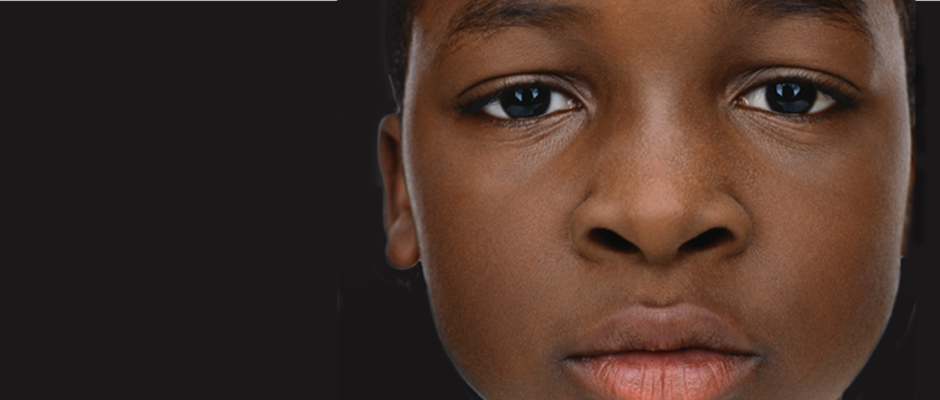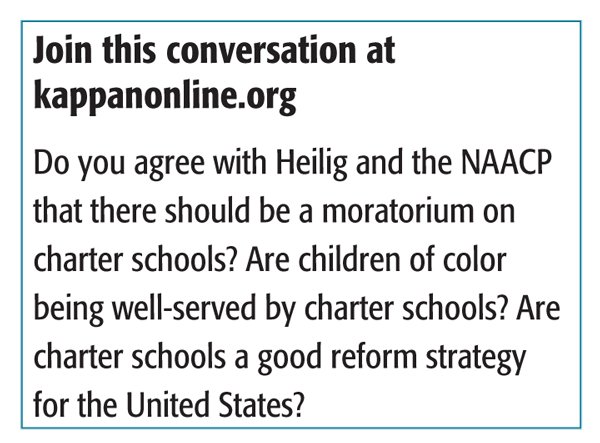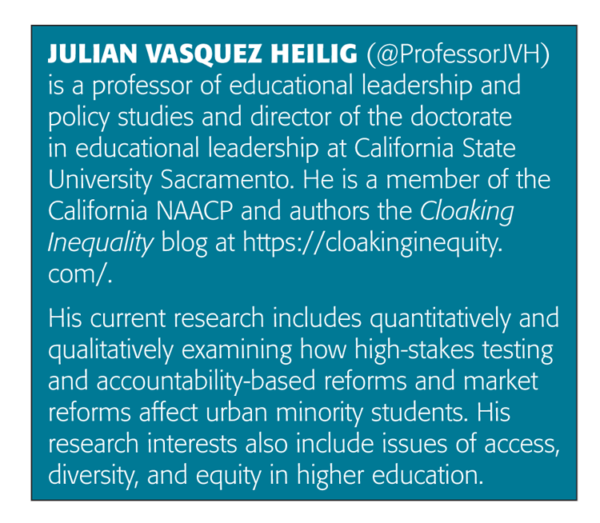Phi Delta Kappan: Do Charter schools serve black children well?

The nation’s largest civil rights organization steps up its opposition to charter schools just as a president and new education secretary appear ready to kick the sector into high gear.
This article appeared here at Phi Delta Kappan.
by Joan Richardson
AN INTERVIEW WITH JULIAN VASQUEZ HEILIG
KAPPAN: What’s your perspective on what led the NAACP to conclude that a moratorium on the expansion of charter schools would be in the best interest of students of color?
HEILIG: If you examine their resolutions over the years, the membership of the NAACP has taken several critical stands on charters. I believe that’s been a response to the fact that there’s been an enormous growth in charters over the past two decades. The federal government alone has spent $3.3 billion on charter schools over the past 10 years. We’ve also seen a doubling of charters over the past few years. There are 6,800 charters across the United States that enroll nearly 3 million children. Charters aren’t really a boutique thing anymore.

So the 2010 resolution by the NAACP first said that we needed to take a really hard look at charters, even saying that they are separate and unequal. In 2014, they passed another resolution equating charters with the privatization movement. So this is really a critique that the NAACP has made over the years.
The NAACP is not alone in taking this stand. Other civil rights organizations have also asked for a moratorium and discussed the role of charter schools in the education privatization movement — the Journey for Justice Alliance, an alliance of charter parents and noncharter parents in cities across the United States, and the Black Lives Matter Movement, which is the nation’s youngest civil rights organization. So you have the nation’s oldest and largest civil rights organization and the nation’s youngest civil rights organization coming together and another grassroots organization that includes charter school parents all speaking in unison.
I also think it’s important to remember that school choice came to prominence when white academics sought to influence the national conversation about desegregation and public education after Brown v. Board of Education. The initial push for school choice was not to improve the success of minority students in the United States. In fact, the academics who recommended school choice envisioned a public education system built around parent-student choice, school competition, and school autonomy as a solution to what they saw as the problem of direct democratic control and governmental intervention in public schools. In the South, school choice was used for “all deliberate slowness” after Brown to ensure that black children would not go to school with white children. So abuse of school choice has long been a civil rights issue.
KAPPAN: What’s striking about the 2016 resolution is its emphasis on the moratorium and the language about the expansion of charter schools. What’s not as clear is whether this means that the NAACP supports or opposes the concept of charter schools or whether the opposition to charter schools is just to create more of them too quickly. Can you clarify that?

HEILIG: I don’t think any of the civil rights organizations have said that we need to close all 7,000 charter schools by tomorrow. The critique has been that there are issues in charter schools and that charter schools haven’t acted substantively to address the critiques. For example, they are paying lobbyists millions of dollars to ensure that in California we don’t have access to discipline data or to teacher attrition data. They appear to be tone deaf to concerns raised by parents and by the African-American community. That’s really disconcerting. It’s been a good outcome that the calls for a moratorium have finally gotten their attention.
The charter movement really hasn’t engaged in these conversations in ways that have been productive in terms of more transparency and accountability for students of color who attend charter schools. Thus, you see this response because charter and noncharter parents are Phi Delta Kappan: Do Charter schools serve black children well? – Cloaking Inequity:
